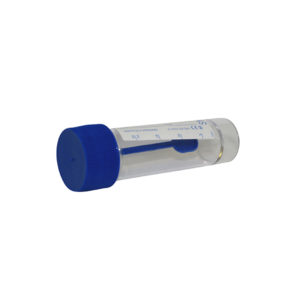At the beginning of the year, South West London Pathology (SWLP) was delighted to award a major clinical blood sciences (CBS) contract for all SWLP sites to global leader in clinical diagnostics Beckman Coulter.
Faecal alpha 1 anti-trypsin
| Category | Immunology and PRU |
|---|---|
| Reporting frequency | 7 working days |
Additional information
Indications
Investigation of suspected protein losing enteropathy (PLE).
In protein losing enteropathy, serum proteins are lost into the gut. One way to assess this is to measure the concentration of alpha-1 antitrypsin in stool samples. Alpha-1 antitrypsin is a protease inhibitor, making it resistant to degradation by proteases in the stool sample.
Sample requirements
Random stool sample of at least 1g.
Samples should be frozen promptly and transported to our laboratory on dry ice. Alternatively a saline extract can be made, filtered, and transported to our laboratory at ambient temperature.
Method
A 1/10 saline extract is prepared of the stool sample and the filtered extract is analysed by rate nephelometry.
Reference range
0.00 – 0.48 mg/gww (grams wet weight of faeces)
Turnaround time
7 working days.
A faster turnaround time is possible for clinically urgent cases. Call the Immunology Consultants on 0208 725 5106 to arrange.
Postal address
Samples should be sent to:
Protein Reference Unit
South West London Pathology
St George’s Hospital
Blackshaw Road
Tooting
London SW17 OQT
For service or price enquiries, please contact the Immunology Manager, Aimee Rhodes, on 0208 725 1918 or email aimee.rhodes@nhs.net.
For any clinical queries, please contact the Immunology Consultants on 0208 725 5106 or email r.wheeler@nhs.net.
Lab Tests Online UK
Lab Tests Online - UK is a website written by practising laboratory doctors and scientists to help you understand the many clinical laboratory tests that are used in diagnosis, monitoring and treatment of disease.
- Search Tests

